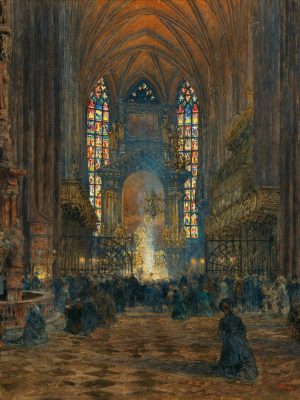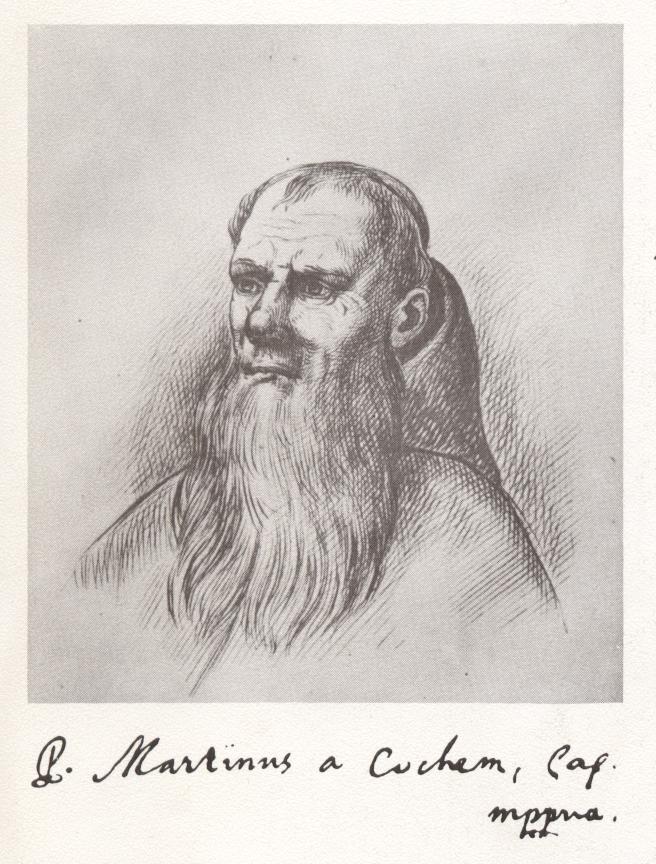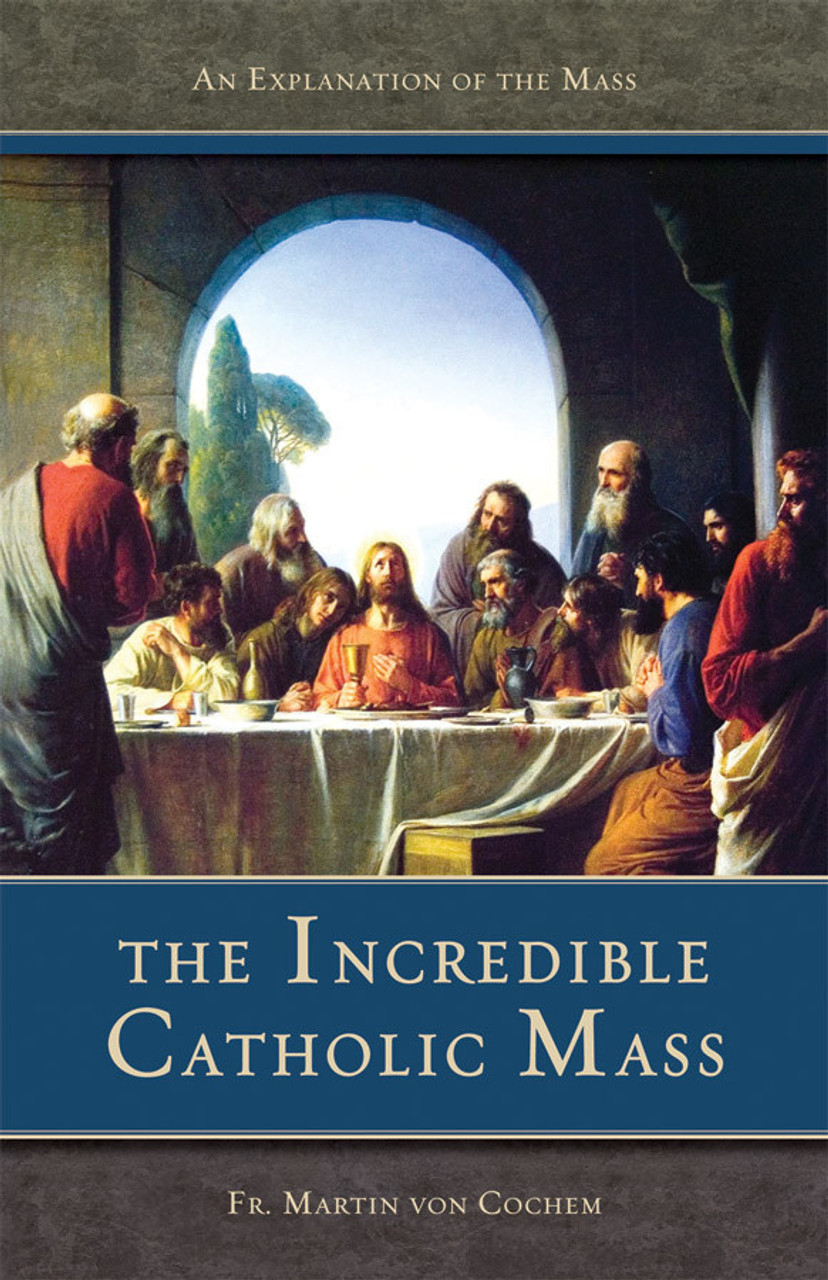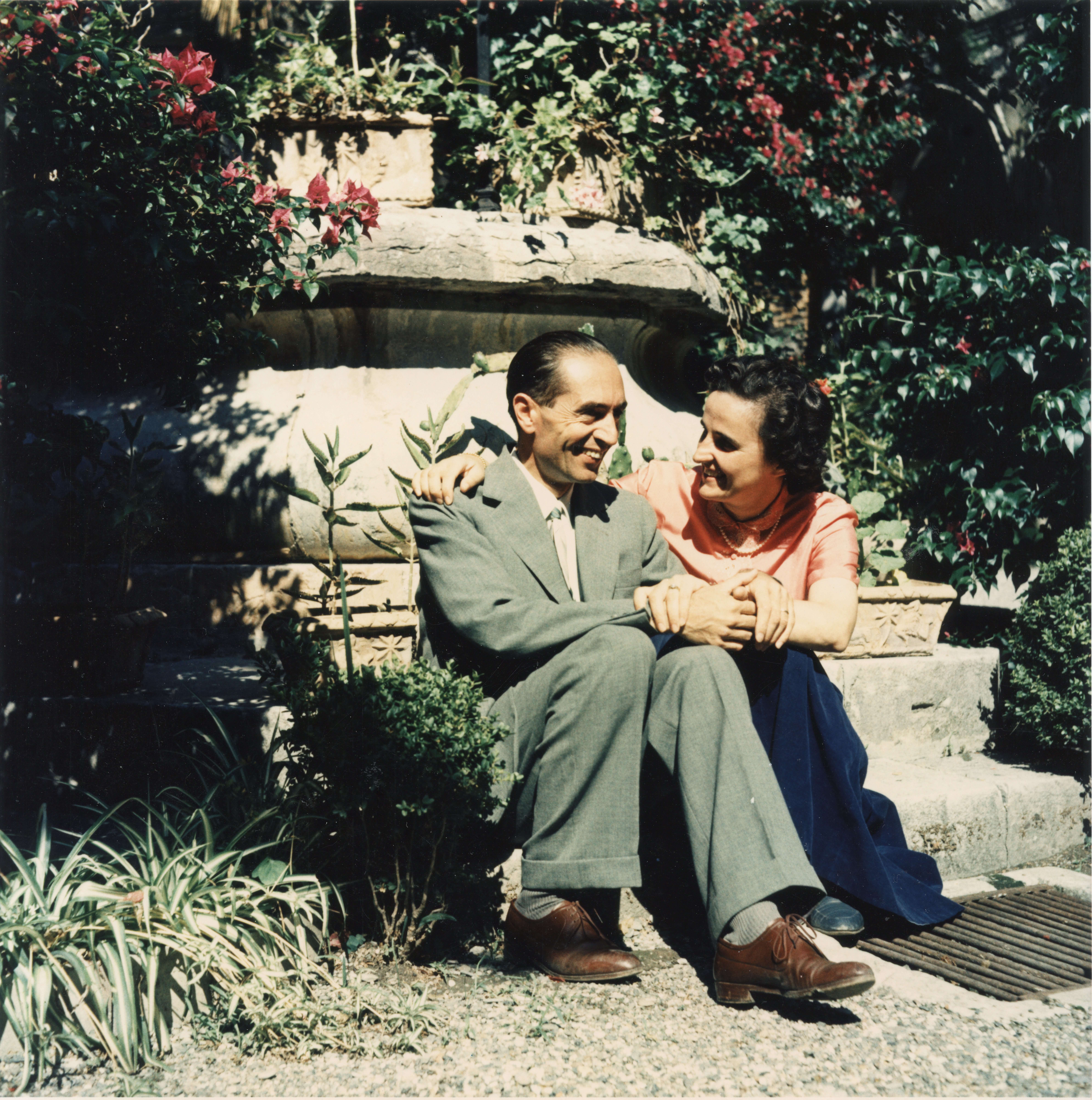The Holy Mass is the highest and most perfect praise we can give to God. Read this beautiful excerpt from The Incredible Catholic Mass to discover why.
The nature of God is so infinite and incomprehensible that no created intelligence is capable of grasping it and describing it. His sanctity is unfathomable, His glory is immeasurable, His riches are beyond compare. He is in Himself strictest justice, gentlest mercy, superabundant loving-kindness, the most attractive beauty. Although the Angels and Saints love Him with their whole heart, yet they tremble before His awful majesty and worship Him prostrate upon their faces in lowly adoration. With all their powers they laud, magnify and bless His infinite perfections; nor do they ever weary of His praise. This praise God demands from them; it belongs to Him as their sovereign Lord and is justly due to His endless sanctity.
From all eternity, before anything was made, God magnified Himself, and the three divine Persons rejoiced in Their majesty and grandeur. God the Father magnified the unsearchable wisdom of His Son; God the Son magnified the bounteous goodness of the Holy Ghost; and God the Holy Ghost magnified the infinite power of the Eternal Father. This is shown in the revelations of St. Mechtilde, to whom Christ said:
“If thou desirest to honor Me, praise and magnify Me in union with that most excellent glory wherewith the Father in His almighty power and the Holy Spirit in His loving-kindness have glorified Me from all eternity, in union with that supreme glory wherewith I in My unsearchable wisdom have glorified the Father and the Holy Spirit from all eternity, and wherewith the Holy Spirit in His ineffable goodness has magnified the Father and Me from all eternity.”
Urged by His infinite bounty and love, God created Heaven and earth, Angels and men, creatures animate and inanimate, in order that they might praise and glorify Him as was His due and as much as in them lay. That such was His original intention we learn from Holy Scripture, which says, “The Lord hath made all things for Himself” (Prov. 16:4), that is to say, in order to be known, praised and glorified by His creatures. This the Angels did from the first moment of their creation; this they do now, and will do for all eternity. The irrational creatures also, wild beasts and tame animals, trees and plants, minerals and stones, each in its own way and according to its capacity, contribute to enhance the glory of the Creator, to whom they owe their being.
This may be proved by the words Christ addressed to St. Mechtilde: “When the priest says in the Mass, ‘Through whom the Angels praise Thy majesty,’ do thou join thy voice to theirs in that celestial hymn of praise whereby the ever-blessed Trinity magnifies Itself and is magnified and wherein the Blessed Virgin Mary and all the Angels and Saints do participate. Wherefore, say a Pater and offer it to Me in union with that hymn of praise with which Heaven and earth and all created things glorify Me.”
Now if all irrational creatures praise their Creator, how much the more is it incumbent upon man to extol and magnify Him, since to this end he was created and endowed with reason. Under the Old Dispensation, David felt this obligation; the psalms and prayers he composed consist of little else than the praises of God and of motives whereby he incites himself to magnify His Holy Name. If the Jews were so assiduous in praising God, much more is it the bounden duty of Christians to do the same, since it is for this that we are made the children of God, as St. Paul distinctly tells us: “Who hath predestinated us unto the adoption of children . . . unto the praise of the glory of His grace.” (Eph. 1:5-6).
That is to say, God has adopted us Christians as His children in order that we may laud and magnify His greatness and His grace. This is the chief duty of all mankind, and he who neglects it sins grievously against God. But who can fulfill this duty correctly, since the majesty of God is infinite and incomprehensible, above and beyond the praise of both Angels and men?
Seeing that our poor human powers were incapable of giving to God the glory due to Him, Our Blessed Lord at the Last Supper instituted the Holy Mass, which is a eucharistic Sacrifice and as such is offered to God by the Church daily and hourly, by day and by night. In the Mass the celebrant says, “We offer to Thee, O God, a sacrifice of praise.” Previously to that, he utters this song of praise: “Glory be to God on high; we praise Thee, we bless Thee, we adore Thee, we glorify Thee,” etc. In the Preface, he says: “Holy, holy, holy, Lord God of Hosts; Heaven and earth are full of Thy glory; hosanna in the highest. Blessed is He that comes in the name of the Lord; hosanna in the highest.”
What a glorious hymn of praise this is! The Seraphim in Heaven sang the Sanctus, Sanctus, Sanctus—“Holy, Holy, Holy;” the little Hebrew children on earth were inspired to sing the Hosanna in excelsis—”Praise in the highest.” Thus these words of praise resound partly from Heaven, partly from earth; the Church, moreover, repeats them thousands of times every day in the Mass, thus praising the Lord our God by the mouth of His priests.
St. Laurence Justinian expresses this well when he says: “It is certain that nothing gives God greater glory than the Spotless Victim of the altar, which Christ ordained to be sacrificed in order that His Church might offer praise to God.” In these words the Saint implies that we can magnify God in no better way than by celebrating or assisting at Holy Mass.
Molina explains how this is. “In Holy Mass,” he says, “the firstborn Son of God is offered up to the Father with all the praises and glory which He rendered Him on earth.” Thus the praise God receives is infinite, for it is the praise His divine Son offers to Him. From our altars Christ praises God in a manner really worthy of the Divine Majesty, and this neither Angels nor Saints, much less men, are capable of doing. Hence it follows that the praise rendered to God in one Mass far exceeds that which He receives from the Angels and the redeemed in Heaven.
St. Irenæus tells us of a maiden who desired most earnestly to praise God with all her powers. Many were the sighs she breathed forth to Heaven, exclaiming: “Would that I had a thousand tongues wherewith to praise Thee, O my God! Would that I had the hearts of all men in my power that I might incite them to Thy praise! Gladly would I give understanding and affections to all irrational and inanimate creatures and engage them to praise Thee incessantly! Were it possible for me to create new heavens and fill them with Seraphim, I would strain every nerve to accomplish this. Happy indeed should I be were I endowed with such powers of soul and body as would enable me to adore, praise, honor and magnify Thee more than all the choirs of Angels, the company of the blessed!”
Such were the fervent desires that filled this loving soul and overflowed in ardent aspirations. One day, when inflamed more hotly than usual with the flames of this holy fire, she heard a celestial voice speaking to her. “Hail, beloved daughter!” it said; “know that I derive more praise from one Mass than all you could give Me were your wishes accomplished. Go diligently to Mass and offer to Me that Sacrifice of Praise, and you will thereby praise and magnify Me to the utmost of your desire.”
ooo
This article is taken from a chapter in The Incredible Catholic Mass by Fr. Martin Von Cochem, OSF which is available from TAN Books.









